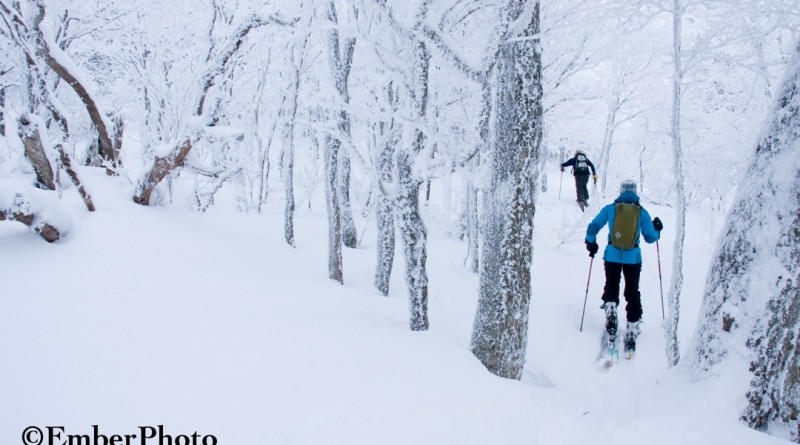Vermont Backcountry Alliance releases code of ethics
Photo courtesy RASTA/Brian Mohr
VERMONT –In an ongoing effort to promote the safe and responsible use of Vermont’s backcountry environment, the Vermont Backcountry Alliance (VTBC) has finalized a new set of Leave No Trace guidelines for the Vermont backcountry.
The VTBC is a new program of the Catamount Trail Association (CTA) and worked in close partnership with the Vermont Department of Forests, Parks and Recreation, Green Mountain Club (GMC), Green Mountain National Forest (GMNF), and the Winter Wildlands Alliance on the code, which has been in development for the past year.
The Vermont Backcountry Ethics feature seven principles that have been adapted, with Vermont’s winter environment in mind, from the seven core and nationally recognized guidelines for outdoor travel developed by Leave No Trace.
“Vermont’s backcountry community is proud to stand behind these common sense guidelines,” says Ned Houston, a volunteer with the Vermont Backcountry Alliance who helped to spearhead the project. “Our hope is that the Vermont Backcountry Ethics will help make the winter backcountry experience safer and more enjoyable for everyone.”
Vermont Backcountry Ethics will be displayed on durable, letter-sized signs at backcountry trailheads, ski areas and other locations throughout the state, and be publicized online via the VTBC, CTA and partners’ websites. Anyone interested in helping to helping to promote Vermont Backcountry Ethics, or post a sign, is encouraged to contact the VTBC or CTA.
VTBC is also working closely with the VT Dept. of Forests, Parks and Recreation (DPFR), the GMNF and other land managers to help update strategies for responsibly managing terrain for backcountry skiing and riding, in partnership with local communities. The Rochester Area Sports Trails Alliance (RASTA), a pilot-CTA Chapter, has several projects off the ground already that will serve as models for others around the state.
Anyone interested in getting involved or supporting the VTBC are encouraged to join or donate to the CTA, which will be accepting grants and donations in support of relevant backcountry skiing and riding initiatives in Vermont.
- Plan ahead and prepare
- Practice safety first.
- Know where you are going.
- Known your own and your group’s limits and minimize risks.
- Travel on durable surfaces
- Stay on deep snow cover whenever possible.
- Dispose of waste properly
- Pack it in, pack it out.
- Leave things as they are
- Leave only tracks. No unauthorized cutting.
- Minimize campfire & hut impacts
- Use a lightweight stove for cooking and enjoy a lantern for light.
- Leave huts and cabins in better shape than how you found them.
- Respect wildlife
- Observe wildlife from a distance. Do not follow or approach wildlife. Winter is an especially vulnerable time for animals.
- Be considerate of others
- Any maintenance or cutting can be done only with permission, as part of an authorized project or program. Respect landowners, both public and private.
- Respect other skiers/riders and all other users.
- When ascending trails, keep clear and yield to downhill traffic. Avoid booting and snowshoeing in skin or ski tracks. When descending always stay in control, go one at a time, and slow down near others.
- Respect designated areas, signs and wildlife.
Vermont Backcountry Ethics (Long Version)

